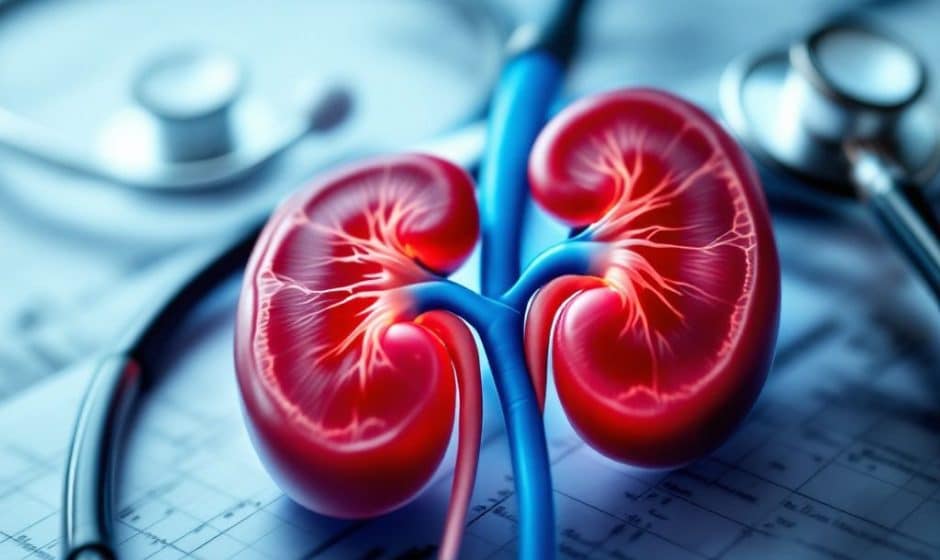Let’s jump right to it—have you ever stopped and thought about why your kidneys are such unsung heroes? Sure, we hear a lot about heart health, bone health, brain health, and even digestive health, but kidneys? They do some incredibly crucial stuff. They filter waste materials, regulate fluids, and yes, they’re key orchestrators in messes such as hormone regulation. Balancing what’s inside your body is no small feat, and the kidneys pull it off like champs. Let’s dig into how to give them the love they desperately need. Trust me, once you understand the role these two fist-sized organs play, you’ll never take them for granted again.
What Makes Kidneys Tick?
So, what does a day in the life of a kidney look like? These incredible beans cleanse around 150 quarts of blood a day. That’s enough to fill an entire kiddie pool! They manage countless substances floating around in your bloodstream—chucking the bad bits into the bladder to form urine while keeping the good stuff cycling through. They even keep your blood pressure in check, handling hormone regulation like masters.
The Art of Filtration
Imagine your body’s own Brita filter—that’s essentially what your kidneys are. They remove excess salts, toxins, and any other waste products from the blood. Filtration doesn’t stop there. It’s a continuous dance between getting rid of waste and holding onto essential substances, and trust me, that’s no easy task. They use tiny structures called nephrons to filter and reabsorb nutrients and minerals. More than just filtering, they can alert hormonal controls to adjust what’s being reabsorbed or eliminated based on your body’s current needs.
Hormone Heroes
Here’s where hormone regulation really comes into play. They’re like the body’s Swiss Army knife, multitasking with finesse. One hormone they produce, erythropoietin, stimulates your bones to make more red blood cells. Another player, renin, is involved in controlling blood pressure. This hormone aspect is often overlooked but profoundly affects your overall health, proving kidneys to be much more than simple waste management centers.
Signs Your Kidneys Might Need More TLC

Recognizing the signals your kidneys send can often be a bit of a challenge. There aren’t any neon signs that flash “kidney trouble!” So, it’s crucial to be attentive and informed.
Common Red Flags
- Fatigue and Feeling Cold: If your kidneys aren’t functioning well, waste products build up. This collection of toxins can make you feel tired and chilly.
- Swelling: Your shoes a bit snug lately? Your hands swollen while doing absolutely nothing? Kidneys help get rid of excess fluid, so any problems there can cause bloating and puffiness.
- Disturbances in Urination: Changes in the volume and color of urine, or the urge to go more frequently (or less) can signal issues.
Tuning into these cues will go a long way in ensuring you’re able to steer clear of potential issues.
Taking Winning Steps for Kidney Health
Sure, becoming a pro on how kidneys function is good to know—but let’s talk action. How can you step up your game and pay a little more attention to them? Usually, it circles back to lifestyle tweaks.
Nutrition—The Building Blocks
Eating wisely is probably the simplest yet the most effective action you can make. When you consume balanced meals, your kidneys job becomes less of a burden.
Watch the Sodium

Sodium is a double-edged sword. We crave it, yet too much of it can harm our kidney function. Processed foods are notorious sodium traps. Stick to fresh produce when you can and experiment with herbs and spices for seasoning. It’s a win-win for your taste buds and your kidneys!
Adequate Hydration
Let’s circle back to hydration. Drinking enough water aids in the elimination of sodium and toxins. Keep something hydrating within arm’s reach always, and if you tend to sip sodas and coffee more—try matching each cup with a glass of water. It doesn’t need to be eight barren glasses a day but keeping your hydration balanced.
Regular Activity
Physical exercise improves blood flow—even to your kidneys. Regular activity is indispensable for not just your organs but general sense of vitality. Whether it’s yoga that appeals to your sense of inner peace or just regular walks with your dog, pitch in some activity to let that kidney flow shine.
Keep An Eye on Over-the-Counter Painkillers
We often reach for these without a second thought. Non-steroidal anti-inflammatory drugs (NSAIDs) can do a number on your kidneys over time if taken carelessly. Use sparingly and never as a habit.
The Weight of Hormone Regulation
Ah, you thought we were done speaking about hormones? Not directly. But there’s always more to say about how hormone regulation affects the functions of the kidneys. Given that they help control calcium levels and activate Vitamin D production, teetering hormone levels can impact bone health, nervous system function, and blood vessels. It instills a greater responsibility for ensuring all systems work optimally together.

Stress Management
Here’s the real catch—overwhelming stress wrecks havoc on hormone regulation and, by extension, kidney health. Employing relaxation techniques like deep breathing, meditation, or even enjoyable hobbies can ease stress loads, keeping that hormonal balance more of a priority.
Advanced Concepts: When It Becomes More Than Lifestyle Adjustments
When lifestyle changes are not enough, what happens? Understanding conditions like Chronic Kidney Disease (CKD), which can silently impair kidney function, is crucial. CKD progresses in stages and can happen for various reasons, ranging from genetic predispositions to long-standing conditions like hypertension or diabetes.
The Role of Medical Interventions
For CKD and related issues, medical guidance becomes therelease from distress. Treatments can include medications to control symptoms or slow progression. For many, it may additionally require dialysis or even a kidney transplant if management becomes cumbersome.
A Recap—In Human Terms
Alright, let’s circle back to absorbing what’s crucial, but this time with a ‘real talk’ approach: take control with food that fuels, down that water like it’s that trending new juice (it’s even better), walk a bit more when life nudges you to be a couch potato, and don’t let stress take you hostage. Respect your body’s signals, and always loop back to making informed choices. The key thread linking all this? Hormone regulation and its symphony of actions that make kidney health tick year after year. Put all these into practice, and our kidney ambassadors will thank you with countless years of they-steady functionality.
Quite a rush of knowledge, right? Dive into applying these things at your pace, one day at a time, tweaking essentials until they fit as seamlessly into your life as a favorite pair of jeans. Your kidneys are indeed rallying for you every step of the way.
Frequently Asked Questions
What is hormone regulation, and how does it relate to hormone replacement therapy (HRT)?
Hormone regulation involves the balance and functioning of hormones in the body. Hormone replacement therapy (HRT) is a treatment that tops up or replaces missing hormones, particularly during perimenopause and menopause when levels of oestradiol, progesterone, and sometimes testosterone decline. HRT helps to alleviate symptoms and improve future health by maintaining stable hormone levels[1][3].
What are the common symptoms of hormonal imbalance that HRT can address?
Common symptoms of hormonal imbalance include irritability, fatigue, mood swings, skin dryness, water retention, weight gain, osteoporosis, joint pain, decreased interest in sex, insomnia, and memory issues. HRT can help alleviate these symptoms by restoring balanced hormone levels, leading to better sleep, increased energy, enhanced memory, and improved overall well-being[1][3][5].
What are the different types of hormone replacement therapy available?
Hormone replacement therapy comes in various forms, including systemic hormone therapy (pills, patches, rings, gels, creams, or sprays), low-dose vaginal products (creams, tablets, or rings), and bio-identical hormone replacement therapy. Bio-identical hormones are structurally identical to human hormones and may have fewer side effects than traditional HRT. The choice of HRT depends on individual health needs and preferences[1][3].
What are the common side effects of hormone replacement therapy?
Common side effects of HRT include bleeding, breast tenderness, bloating, and mood changes (often referred to as the “four Bs”). These side effects are usually temporary and settle within three to six months. If side effects persist, adjusting the dose or type of HRT may be necessary[1].
References



